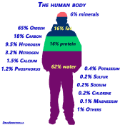What is Drug-Induced Psychosis?
Drug-induced psychosis, also known as substance-induced psychosis, refers to a condition where the use of certain substances triggers psychotic symptoms in an individual who otherwise does not have a history of a psychotic disorder.
Psychosis is a severe mental state characterized by losing touch with reality, leading to hallucinations, delusions, disorganized thinking, and abnormal behaviours.
The person begins to lose a grip on reality, becomes delusional, experiences visual, auditory, and tactile hallucinations, and becomes confused.
It is essential to differentiate drug-induced psychosis from a psychotic disorder like schizophrenia or bipolar disorder.
What Causes Substance Use Psychosis?
Substance use is a common cause of psychotic episodes, and many drugs cause psychotic symptoms. Below are some common drugs which can induce psychosis are:
Alcohol—Acute and chronic alcohol abuse causes reality breaks. Symptoms can last between hours and weeks but resolve during withdrawal management. The cause is thought to be connected to the imbalances in neurochemicals resulting from alcohol abuse.
Stimulants—Drugs like amphetamines, meth, and cocaine all have the potential to cause psychosis. Methamphetamine psychosis, for example, is quite common. Studies have shown that 40% of people who use meth experience psychosis. It is also related to a neurochemical imbalance because of pre-existing drug use.
Hallucinogens—These drugs are known for their ability to create hallucinations. The individual is likely aware they are experiencing the hallucinations. Psychosis occurs when the person is unaware they are experiencing a psychotic break. Drugs include PCP, DMT, LSD, cannabis, and psilocybin.

Stages of
Addiction
Drug
Overdose

Drug Psychosis Vs. Mental Health Issues

Addiction treatment professionals face a significant barrier in differentiating between drug-induced psychosis and mental health issues.
Substance abuse is known to cause anxiety, depression, and stress. Individuals will likely use more drugs to cope with these issues. Regardless, there are differences between the two. Drug-induced psychosis:
- Comes on suddenly.
- It is more intense.
- It only lasts as long as the drug is in the system.
Symptoms should be discussed with a qualified professional. Substance use and addiction should be treated at a residential drug rehab center.

Alcohol
Overdose
Understanding
Cravings

Symptoms of Drug-Induced Psychosis
There are common signs and symptoms associated with substance use psychosis—this can include:
- Increased anxiety levels
- Delusions and paranoia
- Violent or aggressive behaviour
- Memory problems
- Suicidal thoughts and difficulty focusing
- Visual hallucinations
- Fear or panic
- Mixed perceptions
The length of time these symptoms last depends on the level of substance use and medical history. Generally, most symptoms stop after the drug has left the body. However, the effects of methamphetamine psychosis can sometimes last upwards of a month.

Alcohol and
Depression
How to
Quit Crack

Tips to Deal with a Drug-Induced Psychosis
Anyone who has struggled with a loved one addicted to drugs or alcohol would have likely witnessed a drug-induced psychosis. Coping with it is not easy, but there are some ways to help.
Initially, it is crucial to seek professional help immediately.
Controlled breathing exercises help. Relaxed or steady breathing, usually 10 or 12 breaths per minute, helps to bring a sense of mindfulness.
Finally, muscle relaxation and activities promoting extraversion (like a walk, if possible) will help the individual stay in the now.
Finally, and most importantly, seek treatment immediately, as treating drug or alcohol addiction is critical. Substance use can lead to psychosis, yet proper rehab and aftercare effectively manage the problem.
Addiction Series
- Alcohol and Depression
- Alcohol, Dangers in Stopping
- Alcohol Overdose
- Addiction – Beginning
- Addiction Symptoms
- Drug-Induced Psychosis
- Recognizing the Signs and Responding to a Drug Overdose
- How to quit crack cocaine?
- It’s Difficult to Quit Drinking
- Stages of Addiction
- The Functional “Addict” Defined
- Understanding Cravings
- What is an Addiction?
- Alcohol and Depression
- Alcohol, Dangers in Stopping
- Alcohol Overdose
- Addiction – Beginning
- Addiction Symptoms
- Drug-Induced Psychosis
- Recognizing the Signs and Responding to a Drug Overdose
- How to quit crack cocaine?
- It’s Difficult to Quit Drinking
- Stages of Addiction
- The Functional “Addict” Defined
- Understanding Cravings
- What is an Addiction?
Find out more about us.

Marc J. Bernard
Author,
Substance Use Disorder & Recovery Professional,
Referral & Consultation Counsellor


